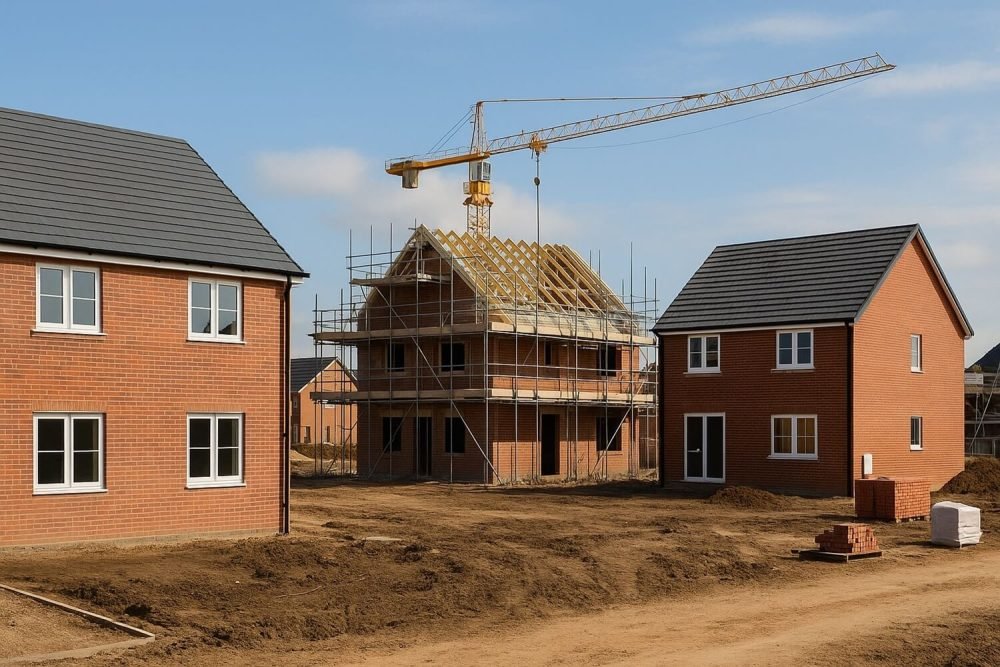Your website is your 24/7 digital storefront. But if it’s not set up properly, you could be losing dozens of potential leads each month — often without realizing it. That’s where real estate SEO becomes critical.
Below, we’ll cover 7 of the most common website mistakes real estate professionals make — and how to fix them fast.
Mistake #1: No Clear Target Market or Niche
Trying to appeal to “everyone” is the fastest way to convert no one.
Successful agents often specialize in a niche:
-
First-time homebuyers
-
Luxury properties
-
Downtown condos
-
Commercial real estate
-
Real estate investors
If your website content is generic, Google won’t know what to rank you for. Instead, optimize your content with real estate SEO keywords tailored to your ideal client profile.
Mistake #2: No On-Page Optimization
Even if your website looks great, you still need basic SEO fundamentals in place:
-
Page titles that include location + service
-
Meta descriptions that entice clicks
-
Header tags with structured keywords
-
Proper use of schema markup
These basics are often overlooked by agents who don’t work with a real estate SEO company or consultant.
Mistake #3: Poor Mobile Experience
Over half of all real estate traffic comes from mobile devices. If your site loads slowly or the layout breaks on smartphones, users bounce.
Make sure your site is:
-
Fully responsive
-
Loads in under 3 seconds
-
Easy to navigate with fingers/thumbs
-
Featuring clean call-to-actions on every page
Improving mobile performance directly impacts your rankings, especially with local SEO for real estate.
Mistake #4: No Blog Content
If your website is just a few static pages, you’re missing out on massive traffic potential.
A blog allows you to:
-
Answer buyer/seller questions
-
Target long-tail keyword traffic
-
Build internal links
-
Position yourself as a local expert
SEO for real estate agents works best when paired with consistent, valuable content creation. Even one blog per week makes a difference.
Mistake #5: Using Only IDX Listings for SEO
While IDX integration is important for showcasing homes, it doesn’t help much with SEO. Most IDX content is duplicated across other sites — and Google doesn’t reward duplicate pages.
Instead, create custom content like:
-
Neighborhood guides
-
Market updates
-
Lifestyle tips
-
School and amenity overviews
This custom content helps SEO for real estate websites gain authority and visibility.
Mistake #6: No Internal Linking Strategy
Without links connecting your site’s pages, users and search engines struggle to navigate your content. Each page becomes an “island.”
Start by linking:
-
Blog posts to main service pages
-
Related blog posts to each other
-
Location-specific pages to broader city/state pages
A strong internal link structure is a silent power-up for SEO real estate marketing.
Mistake #7: Weak or No Calls-to-Action (CTAs)
Imagine ranking on Google, getting traffic… but then losing the visitor because you didn’t ask them to take action.
Every page should include:
-
Buttons (Book a Call, Get a Free Home Valuation)
-
Lead magnets (Download a Neighborhood Guide)
-
Contact forms or appointment calendars
This is where real estate agent SEO efforts actually convert into leads and appointments.
Bonus Tip: Track Everything
If you’re not measuring traffic, bounce rate, keyword rankings, and conversions, you’re flying blind.
Set up:
-
Google Analytics
-
Google Search Console
-
Basic heatmaps (like Hotjar)
-
Call tracking or CRM integration
This is what separates a hobby site from a lead-gen powerhouse. And if you’re serious, work with a real estate SEO expert to scale efficiently.
Final Thoughts
Your website doesn’t need to be fancy to be effective — it needs to be functional, optimized, and built with intent. By avoiding these 7 mistakes (and fixing them quickly), you set the foundation for strong long-term rankings and consistent lead generation.
If you want a team to help implement these best practices, explore our real estate SEO services and let’s turn your website into a high-converting asset.

